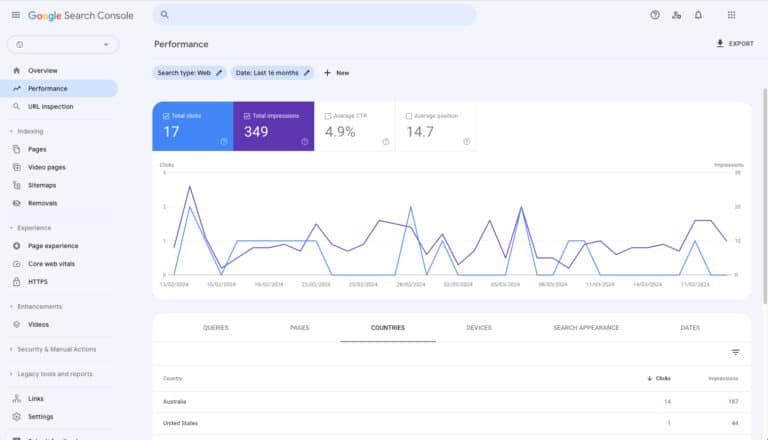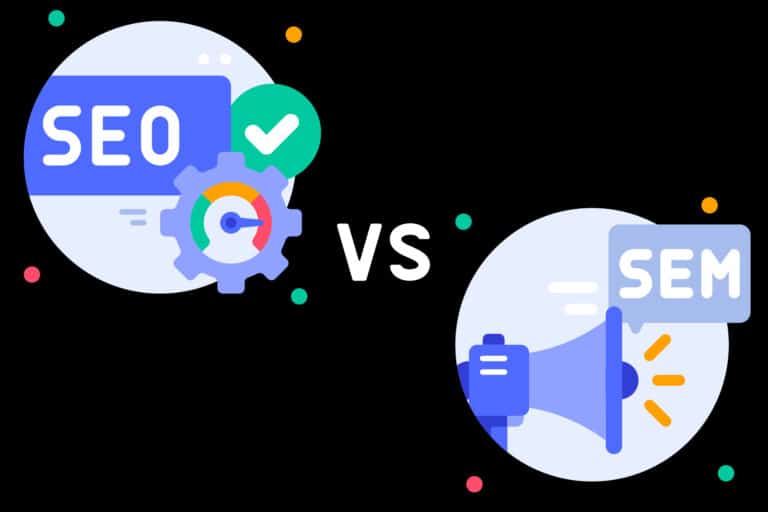Since the launch of ChatGPT in 2022, Artificial intelligence (AI) has rapidly evolved the landscape of businesses across all industries. From automating repetitive tasks to providing more customised insights into customer behaviour, AI is helping businesses to be more efficient and effective. The power of AI lies in its ability to process vast amounts of data, analyse patterns, and make data-driven recommendations.
It has particularly transformed the way marketers approach tasks such as data analysis, content creation, campaign optimisation, and customer engagement. However, amidst the advancements, a crucial question emerges: Can AI completely replace human specialists in the field of digital marketing?
In this blog post, we will explore the potential of AI in digital marketing and discuss whether it is likely to replace human specialists. While AI offers remarkable capabilities and has already made significant contributions to the field, it is essential to consider the unique strengths and qualities that human specialists bring to the table.
Current AI Tools, Trends and Projections
If we’re writing an article about AI, let’s get the AI tools to speak for themselves…
I asked ChatGPT, what are the current AI tools that could be used to replace digital marketing work? The response:
Chatbots and Virtual Assistants: AI-powered chatbots and virtual assistants can automate customer interactions, provide instant support, and handle basic inquiries. These tools use natural language processing (NLP) algorithms to understand and respond to customer queries, improving customer service and freeing up human resources for more complex tasks.
Predictive Analytics: Predictive analytics tools leverage AI algorithms to analyze historical data and predict future outcomes. They can provide valuable insights into customer behavior, campaign performance, and market trends. By utilizing predictive analytics, marketers can make data-driven decisions and optimize their strategies for better results.
Content Generation: AI can assist in content creation by generating automated reports, product descriptions, and even blog posts. Natural language generation (NLG) algorithms analyze data and produce human-like content, saving time and effort for marketers. However, human input is still necessary to ensure the quality, creativity, and brand voice of the content.
Personalization and Recommendation Engines: AI-powered recommendation engines analyze user behavior and preferences to deliver personalized recommendations and experiences. By understanding individual customer preferences, these tools can provide targeted content, product recommendations, and personalized marketing messages, enhancing customer engagement and conversion rates.
Programmatic Advertising: Programmatic advertising platforms utilize AI algorithms to automate ad buying and optimization. These tools optimize ad placements in real-time, targeting specific audiences and maximizing ad performance. They can analyze data on user behavior, demographics, and ad performance to deliver highly targeted and relevant ads to the right audience.
Social Media Management: AI tools for social media management can automate tasks such as scheduling posts, analyzing engagement metrics, and identifying trends. They can also provide insights on the best times to post, optimal content types, and audience demographics, helping marketers optimize their social media strategies.
Image and Video Recognition: AI-powered image and video recognition tools can analyze visual content to identify objects, faces, and emotions. These tools enable marketers to understand how their brand is visually represented and monitor the usage of their brand assets across various channels. They can also help in sentiment analysis by analyzing the emotions conveyed in visual content.
I asked Google’s Bard, what are the current AI projections? The response:
- The AI market is expected to grow exponentially in the coming years. The global AI market is projected to reach $407 billion by 2027.
- AI will become increasingly integrated into our lives. AI is already being used in a variety of industries, from healthcare to manufacturing to transportation. As AI technology continues to develop, we can expect to see even more widespread adoption of AI in the years to come.
- AI will create new jobs and opportunities. As AI automates tasks that are currently performed by humans, it will create new jobs in the development, deployment, and maintenance of AI systems.
- AI will raise ethical concerns. As AI becomes more powerful, it is important to consider the ethical implications of its use. For example, how will AI be used to make decisions that impact people’s lives? How will AI be used to protect privacy and security?
To complete this section of the article, I used Elementor’s AI-Powered Image Creation to depict ‘business owners discussing AI in a boardroom’. At least it’s unique?

What Digital Marketing Tasks Can AI Do?
AI is already being used in a variety of ways in digital marketing, and its use is only likely to increase in the future. As AI technology continues to develop, we are finding more and more AI integrations in our tools.
In search engine optimisation (SEO) and website development, we see AI integration in:
- Website builders and plugins (Elementor, AIOSEO, SurferSEO)
- Website analytics (SEMrush, Ahrefs, Google Analytics)
- Keyword research (Twinword, CopyAI, ChatGPT)
- Campaign optimisation
- Reporting
- Writing code
<!DOCTYPE html>
<html>
<head>
<title>AI in Digital Marketing</title>
<style>
.centered-section {
text-align: center;
padding: 20px;
background-color: lightgray;
}
.centered-textbox {
width: 300px;
height: 150px;
margin: 0 auto;
background-color: white;
display: flex;
justify-content: center;
align-items: center;
}
</style>
</head>
<body>
<section class="centered-section">
<h2>What Digital Marketing Tasks Can AI Do?</h2>
<div class="centered-textbox">
<p>ChatGPT wrote this</p>
</div>
</section>
</body>
</html>
This also expands into content creation and ad generation. Currently, content can easily be created right from Google, Facebook and LinkedIn for ads and posts by simply utilising their integrated AI tools. Additionally, external tools such as Jasper, Bing Image Creator and Bard can help you create an entire ad copy within a few prompts, cutting the time you spend creating marketing copy in half.
Let’s break it down. What repetitive, costly and time-consuming tasks does this resolve?
- Copywriting
- Sourcing original images
- Data analysis
Where Does AI Fall Short?
While AI offers remarkable capabilities at cutting down costs and time spent on tasks in digital marketing, there are areas where it falls short in comparison to a human specialist.
Limited Database and Stuck In 2021: ChatGPT’s knowledge is based on the data available to it up until September 2021. It’s important to note that it does not have access to the latest news, developments, or events that have occurred after this date, and that the information has been sourced from a limited database. This of course raises ethical issues of what data sources the AI deems correct and therefore strings together it’s output.
Best Practices vs Out-Of-The-Box Thinking: Just because a webpage or social media post follows ‘best practice’, doesn’t mean it is well-optimised or performs well. Compared to AI, human specialists can quickly grasp the broader context, analyse market trends, and incorporate their industry expertise to develop comprehensive strategies tailored to an individual, their industry, and their geographical context. They can adapt their approach based on real-time feedback and make agile decisions, whereas AI algorithms may struggle with rapidly changing scenarios.
Creativity and Innovation: AI lacks the ability to think creatively and come up with original ideas. Marketing often requires a creative approach to capture audience attention, develop unique campaigns, and create compelling content. Human specialists bring a level of creativity and innovation that AI algorithms cannot replicate.
Contextual Understanding and Nuanced Interpretation: AI algorithms primarily rely on data patterns and trends, which can lead to limitations in contextual understanding and nuanced interpretation. Digital marketing often requires interpreting complex information, understanding cultural nuances, and making subjective judgments. Human specialists bring contextual understanding and the ability to interpret nuances that AI algorithms may not capture accurately.
Everyone Is Producing The Same Work: With a lack of creativity, only following ‘best practices’ and sourcing information from a limited well of data, everyone’s AI-generated content, websites and social media posts are going to all, well, look the same. How do you compete when your AI-tailored strategy is identical to your competitors’? Is that plagiarism? Can you still rank well online?
Adaptability to Unstructured Data: AI algorithms excel in processing structured data sets, but they may struggle with unstructured data sources like user-generated content, social media conversations, or visual content. Human specialists have the ability to extract insights from unstructured data and use their intuition and expertise to interpret and leverage it effectively in digital marketing strategies. Visual content is quite an obvious look into how AI couldn’t particularly replace the need for original human content creators (this is AI teaching me how to do digital marketing):

Chat To A Human About A Custom Strategy
While AI offers significant benefits in terms of automation, data analysis, and even some optimisation recommendations, the limitations outlined above demonstrate the importance of human involvement in digital marketing. Ultimately, the combination of AI tools and human specialists can create powerful synergies, leveraging the strengths of both to drive effective and successful digital marketing campaigns.
A reliance on AI in day-to-day digital marketing has evolved our industry and what it means to be a human strategist. If you’d like to discuss how our human specialists can tailor a strategy to your business, book a strategy session today. At 5 Twelve, we have a specialist in both SEO and Google Ads, creating thoughtful strategies to achieve ongoing results for businesses across Australia.





